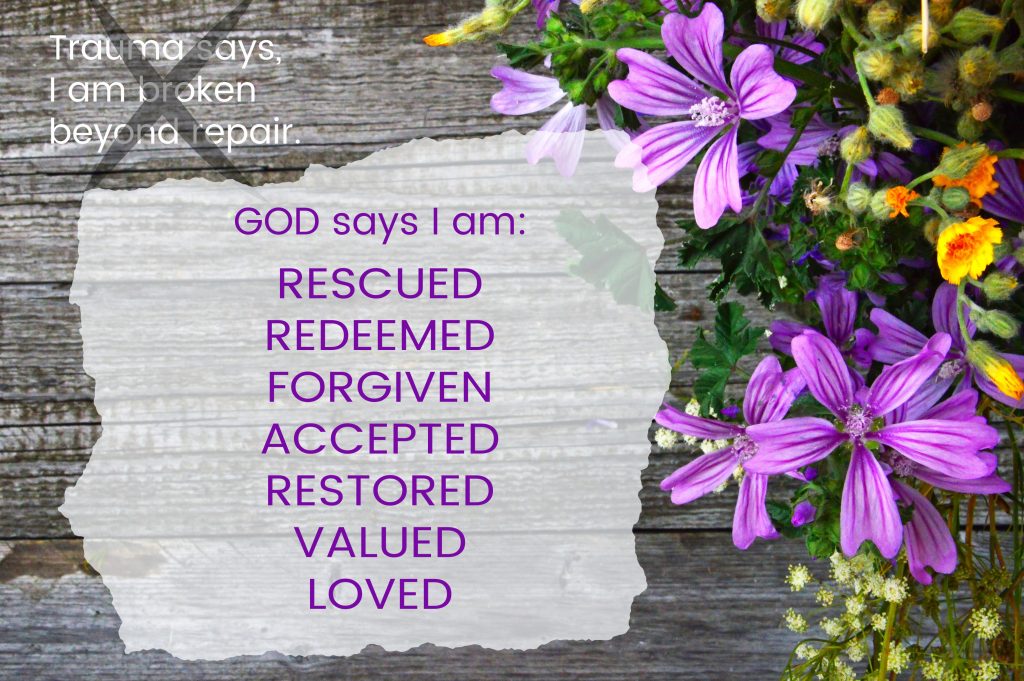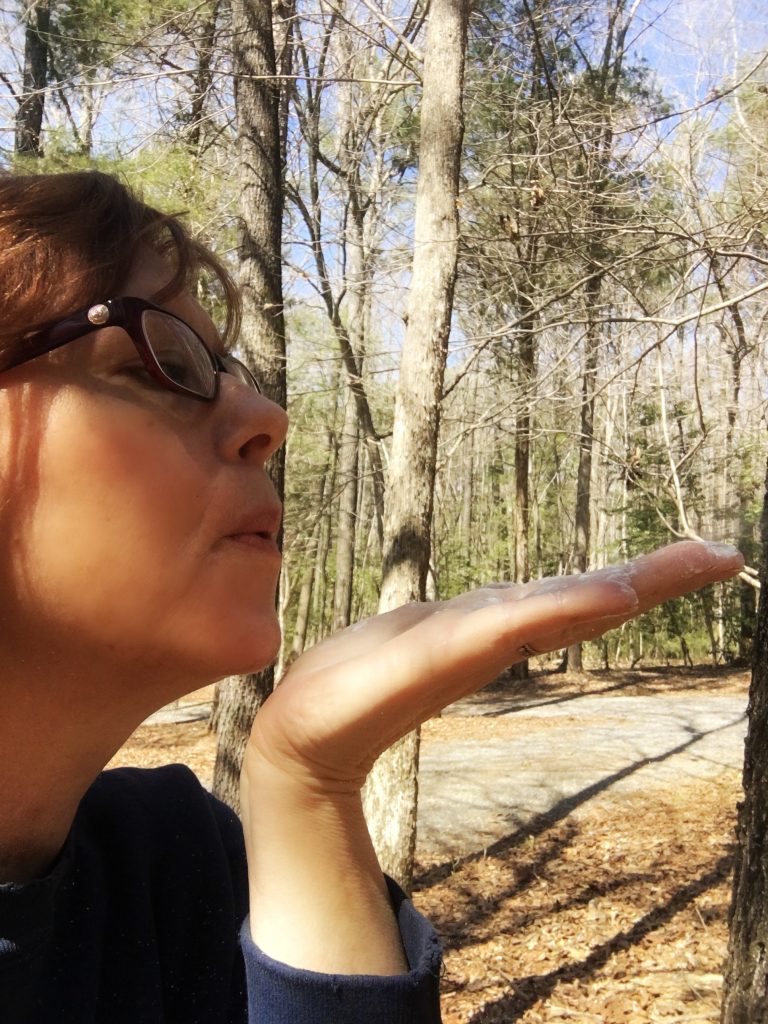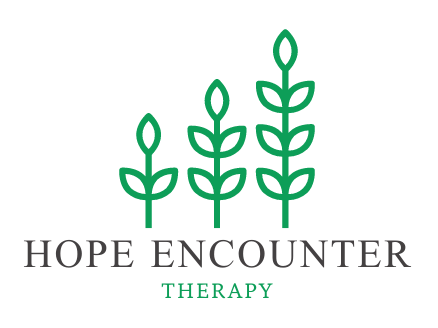Trauma, especially childhood sexual trauma, tells us we are broken beyond repair—damaged, flawed and unworthy. We classify childhood sexual abuse (CSA) as Complex Post-Traumatic Stress Disorder (C-PTSD). C-PTSD differs from PTSD in several important ways; most related to our identity. C-PTSD attacks our core—how we feel about ourselves and how we view ourselves in relation to others.
The first lessons we learn as infants are about protection and comfort. Ideally, when we cry, someone picks us up, feeds us, holds us close, consoles us. As we grow, we develop higher cognitive functioning—language and communication skills. Yet, information entering the brain is still limited by the current stage of development. For the developing brain there is no comprehension of someone entrusted with our care harming us. Our earliest hard-wiring tells us someone who loves us will not hurt us. They comfort and protect us. We literally cannot make sense of the abuse.
My CSA occurred between the ages of four and six. A little girl with no knowledge of sex. Not understanding the difference between non-sexual physical acts of love—hand holding, hugs, goodnight kisses from Mom or Dad and dirty, vile, unspeakable acts perpetrated by someone I trusted.
He loved me and would never harm me. Message received—he was good, and I was bad. Suffering an incomprehensible abuse distorts perceptions and leads to shame. Shame tells us we are to blame—something is wrong with us; we are despicable and beyond repair. It is a core belief born in trauma—tied to how we view ourselves and our relationship with others. It distorts our sense of responsibility. In our skewed perception we give the perpetrator a pass while we walk through life weighted down by stones of shame in our pockets.

We can carry these stones around for years; unaware that others don’t carry the same load. My parents introduced me to the bible as an infant. I grew up hearing stories of adventure and miracle—Daniel in the lions’ den, Jonah in the whale, Jesus walking on water. At eight years old I memorized my first scripture, “Create in me a pure heart, O God, and renew a steadfast spirit within me” (Psalm 51:10). Memorized not to enhance my relationship with God but to remind me of my shame and unworthiness. No stories of adventure or miracles for me. I memorized Psalm 51:10 to remind myself how dirty and shameful I was and to beg God to clean me up and forgive my sinful acts. I prayed every night for ten plus years for God to forgive me for what my uncle did. The deceptive and debilitating message of trauma.
I no longer take responsibility for my uncle’s acts. Yet, I do from time to time, more often than I wish to admit, judge myself unworthy of God’s love and acceptance. And, I struggle most of all with his forgiveness. I am a sinner. Bought with a price—his son’s death. And with his single, glorious, redemptive act, I am free to ask for and receive forgiveness. But, sometimes, old patterns emerge and remind me—you are unforgivable. Flawed. Broken. For me, accepting God’s forgiveness is the hardest part. And, remembering, I am not responsible for other people’s choices and sins.
In the dark moments when I forget who I am. RESCUED. REDEEMED. FORGIVEN. ACCEPTED. RESTORED. VALUED. LOVED. I turn to the scriptures.
RESCUED
“So, we say with confidence, The Lord is my helper: I will not be afraid. What can man do to me?” Hebrews 13:6
REDEEMED
“In him we have redemption through his blood, the forgiveness of sins, in accordance with the riches of God’s grace that he lavished on us. With all wisdom and understanding.” Ephesians 1:7-8
FORGIVEN
“I am writing to you, dear children, because your sins have been forgiven on account of his name.” 1 John 2:12
ACCEPTED
“Then Jesus declared, I am the bread of life. Whoever comes to me will never go hungry, and whoever believes in me will never be thirsty. But as I told you, you have seen me and still you do not believe. All those the Father gives me will come to me, and whoever comes to me I will never drive away.” John 6:35-37
RESTORED
“Instead of your shame you will receive a double portion, and instead of disgrace you will rejoice in your inheritance. And so, you will inherit a double portion in your land, and everlasting joy will be yours.” Isaiah 61:7
VALUED
“What, then, shall we say in response to these things? If God is for us, who can be against us?” Romans 8:31
LOVED
“As the Father has loved me, so have I loved you. Now remain in my love.” John 15:9

I set aside Psalm 51:10. It has a place, but as a healing survivor of sexual abuse, it is no longer my anthem. I turn to the restoration scripture. “Instead of shame you will receive a double portion, and instead of disgrace you will rejoice in your inheritance. And so, you will inherit a double portion in your land. And everlasting joy will be yours.” Trading shame and misplaced responsibility for ABUNDANCE (double portion), INHERITANCE, and EVERLASTING JOY.

Building an identity based on God‘s view of us breaks the pattern of shame; restoring confidence and hope. Those shame stones in my pockets? Crushed by the weight of who God says I am. Occasionally, I find dust in my pockets. An event or thought attempting to weigh me down. I place it in my open, outstretched palm and blow it away on the gentle breeze of God’s mercy and faithfulness.


